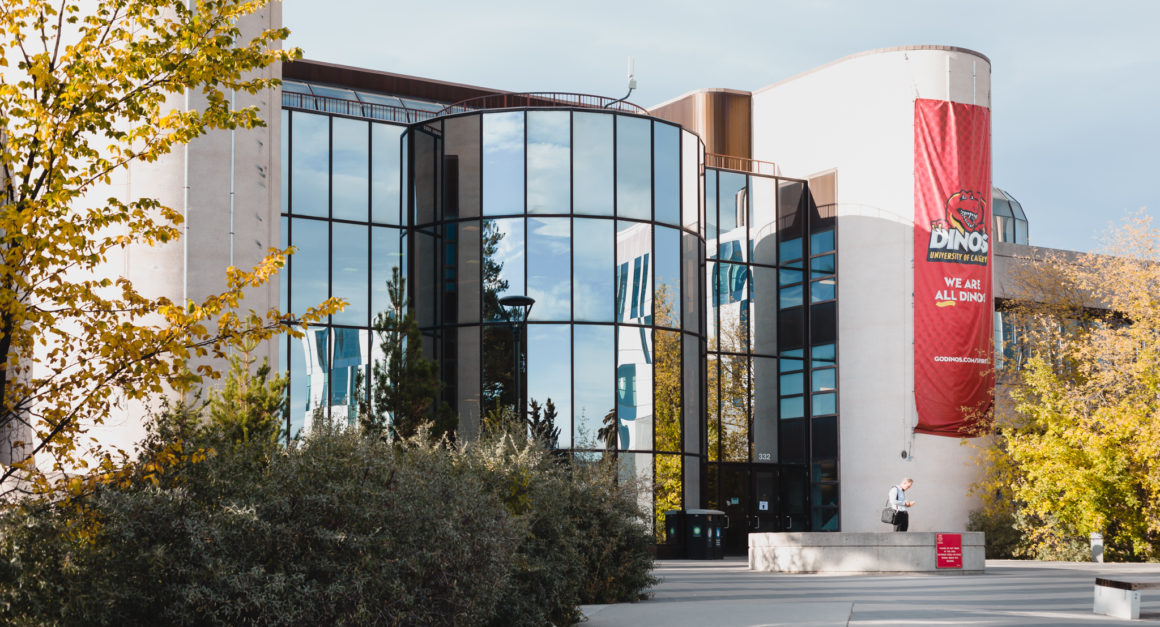
Board of Governors post-report given at SLC
By Cristina Paolozzi, July 12 2021—
The Students’ Legislative Council (SLC) met on July 6 and discussed the outcome of the Board of Governors meeting from June 18, in which the Board approved the exceptional tuition increases for the Fall 2022 school year.
The Board of Governors post-report was given by Frank Finley, Board of Governors representative, and detailed the discussion had with other Board members concerning the exceptional tuition increase to the Bachelor of Science in Engineering degree, the MBA program at the Haskayne School of Business and the Medical Doctor program from the Cumming School of Medicine. Increases to the international student fees, specifically from the Faculty of Engineering, were also discussed.
Finley noted that these tuition increases are pending ministerial approval, and that the Board is waiting to hear back from Demetrios Nicolaides, the minister of advanced education, who received the request at the end of June. Any tuition increase that is an exceptional tuition increase needs approval by both the Board of Governors and by the government.
Finley also spoke about the presentation given by Students’ Union (SU) President Nicole Schmidt at the Board meeting, calling it “impressive,” although the tuition increases were ultimately approved.
Finley commented on some of the questions that both he and Schmidt raised at the Board meeting regarding the tuition increases and how that might impact students moving forward. One of the questions Finley posed to Teri Balser, vice-provost academic, was to clarify if everyone knew that these exceptional tuition increases could only be raised once every five years.
“There was concern in my mind that there was an expectation that this would be the first in a row of increases for particular programs,” said Finley. “Of course they could still bring in exceptional tuition increases for other programs.”
Even though the exceptional tuition increases affected three different programs, they were all voted on in one motion at the Board of Governors meeting. Finely noted that Schmidt motioned to break apart the tuition increases to be voted on as three separate motions and said that himself and a few others voted in favour of this motion as well. Ultimately, the motion did not pass, and the tuition increases were voted on as one.
“I voted to separate the [tuition increases] out, because I felt that they were indeed somewhat separate, and dealt with different arenas at the university,” said Finley. “However, the Board did not want to vote on them separately, as such when they came forward only about seven or eight people voted to separate them out.”
Finley reported that he voted against the exceptional tuition increases and noted some of the concerns he had, specifically with the increase to international student tuition in the Faculty of Engineering.
“I’m particularly concerned about the Engineering international tuition increase, which is the largest tuition increase that I can find in Alberta in recent years for an undergraduate program — and when I say recent years, I mean in the last decade,” said Finley. “It is pretty, pretty large.”
Finley also commented on some of the conversations between governors who were in favour of the tuition increase and those who weren’t.
“The arguments from the deans for these exceptional tuition increases generally fell into a couple of categories, but the main overarching argument here was that these tuition increases were required to maintain program quality,” said Finley. “The concerns from governors who felt these tuition increases were massive and unfair, were that this was going to actually push students out of the system — this was going to prevent students from even being able to attend the University of Calgary, that was one of the concerns that I spoke on, and beyond that, that this would be the wrong time to bring forward any tuition increase, let alone huge exceptional tuition increases, just as students are attempting to get back on their feet from the pandemic.”
Finley also spoke on the level of consultation the university undertook to make the details of the increases known to students, which was also a topic of discussion at the Board meeting.
“There was interesting back and forth around whether appropriate consultative measures had been performed by the university,” said Finley. “As everyone here probably knows, the university has to go through a process of consultation, in order to bring these exceptional tuition increases forward, and I strongly agree with President Schmidt — she spoke on this at length — that these tuition increases were rushed forward, were brought forward at a time where the university was well aware that most students would not be on campus and that the process was rushed and that a lot of the so-called consultation that was done was not true consultation because very little detail was given to students and students were expected to respond to that.”
Finley concluded that he does not believe the university conducted proper consultation and said that students did not have enough information to be able to respond to a tuition increase of this size.
“People were provided with basically no information at all, and expected to be able to respond to that, which is of course, ridiculous — that’s not how consultation works,” said Finley. “You have to, at the very least, provide people with some sort of parameters of what you’re talking about or their not even going to know how to respond. So I reject the university’s argument that any sort of proper consultation was done.”
Agendas, minutes, and upcoming meetings for SLC can be found online.
